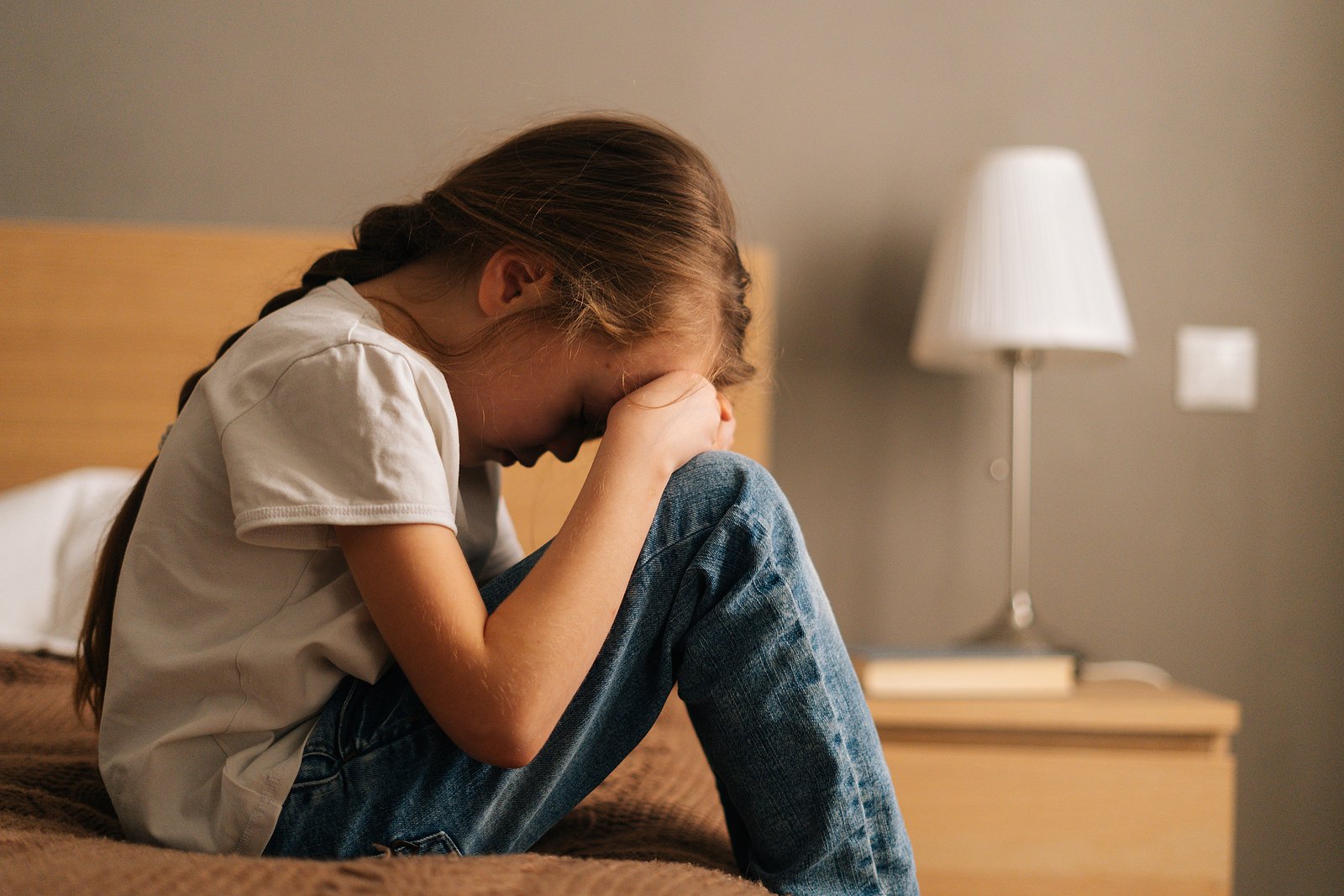Depression in Kids
Symptoms of depression sometimes can get mistaken for behavioral issues. The symptoms look so different in childhood than it does in adulthood. So, it can be super helpful for parents to learn more about this subject.
Depression in kids tends to go unnoticed or undiagnosed. Teachers, parents, and caregivers will notice a child acting in a different way and may assume this is the result of hormonal changes. Or, an external factor like school or peers.
But, if you have noticed a change in your child, it may be helpful to assess the changes. Doing so can help you ensure they are not symptoms of depression that resemble something else.
Here is a list of the symptoms to look for regarding depression in kids:
Change in mood
Being socially withdrawn
Extreme anger to small situations
Being irritable or cranky
Less patience than usual
Sensitive to rejection
Outbursts or meltdowns
Increase or decrease in appetite
Crying more
Physical discomfort more often (stomach ache, headache)
Trouble focusing
Fatigue or low motivation
Loss of interest in activities they usually enjoy
Feelings of worthlessness or hopelessness
Thoughts of suicide
Change in appearance
Decrease in personal hygienic practices
Depression in childhood can be mistaken for behavioral issues. So, it is important to take note of which specific symptoms can confuse adults in this way. Especially if they take place in a school setting.
The changes that take place in a child’s mood when they are experiencing depression can lead some adults to label this child as “a disruption” or “a problem child.” This may include irritability, temper tantrums, or extreme anger. But, these are some of the more common signs that your child may feel depressed.
Why might your child be depressed?
You may have a family history of depression, knowingly or unknowingly
The child may have been the victim of bullying
They may have experienced a traumatic incident. Whether it be major trauma or minor trauma
They may have experienced the loss of a loved one
The child may be lacking stability in their life, such as a change in school or a recent move
They may be experiencing a physical health problem
It is important to note that depression is a lot more than the normal blues or emotional changes that children go through. Children can certainly develop symptoms of depression due to a saddening experience. But, the depression itself is a lot more than feeling upset.
Where do we go from here?
Do you feel that your child is experiencing some of the symptoms listed above? If so, here are some suggestions for you!
Talk to their pediatrician. The more professionals involved, the better!
Schedule an appointment with a child depression therapist. Early intervention is the best kind of intervention!
Create an open dialog with your child about mental health. Explain to them that they are allowed to tell you how they are feeling and won’t get in trouble.
Your child could receive a prescription to help get them to a more stable place. If your child is prescribed medicine, it's recommended and important to make sure they are seeing a mental health professional while taking the meds.
Tell their teachers, guidance counselors, and coaches what the situation is. If your kid does not want you to go into full detail, that’s fine! But telling them some parts of it would be important. The bigger the support system, the better it is for your child.
If you feel like your child is struggling with symptoms of depression, don’t hesitate to have them assessed. Schedule a free, 15-minute consultation call today with one of our child therapists. Help your child can get the proper care they need!
Begin Working with a Child Depression Therapist in Philadelphia, PA
Your child deserves support in coping and overcoming their depression symptoms. Our team of caring therapists can offer high-quality support from our Philadelphia, PA-based practice. To start your counseling journey, please follow these simple steps:
Meet with a caring depression therapist
Start addressing depressive symptoms!
Other Services Offered with Amel Therapy
Child therapy isn’t the only service offered from our Philadelphia, PA-based counseling practice. We also offer a variety of services via online therapy, and in-person for teens, teens, kids of color, and parents. We also offer other types of parent support. In addition, we also offer trauma therapy, play therapy, and support groups as well. These include the worry warriors, culturally confident teen group, and teen girls group. Learn more by visiting our blog or by learning more about our team today!



